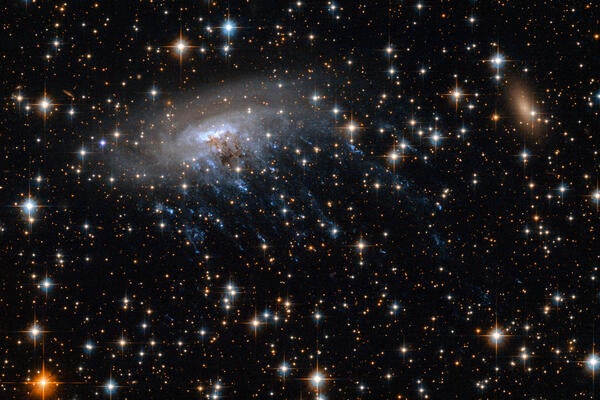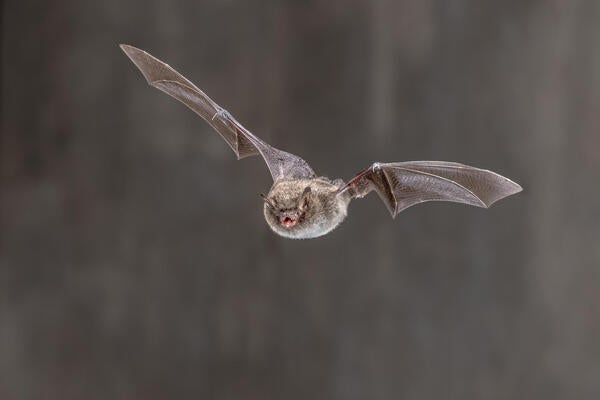
Researchers test new approach to quantum-secured communication in space
Researchers from Canada and the United Kingdom will test a new approach for secure communication using satellite-based quantum technology.

Researchers from Canada and the United Kingdom will test a new approach for secure communication using satellite-based quantum technology.
By Media RelationsResearchers from Canada and the United Kingdom will test a new approach for secure communication using satellite-based quantum technology.
Led by Thomas Jennewein, a faculty member in the Department of Physics and Astronomy and the Institute for Quantum Computing, researchers at the University of Waterloo are developing the Quantum Encryption and Science Satellite (QEYSSat), with a quantum key distribution payload that will allow the transmission of unbreakable keys for securing information.
The Waterloo team, which is leading the project, will closely collaborate with its Canadian partners Honeywell, the Canadian Space Agency, and researchers at the University of Calgary on demonstrating a novel quantum protocol onboard the QEYSSat mission.
U.K. aerospace company CraftProspect will collaborate with researchers at Strathclyde University and the University of Bristol to develop an integrated quantum transmitter.
By sending secret keys to ground stations on both sides of the Atlantic, the project will serve as a proof of concept for a global communications network secured by the laws of quantum physics. The first prototypes of the UK systems have been delivered and are now undergoing integration testing in Canada.
“It is crucial that we combine expertise from both sides,” Jennewein said. “Our U.K. partners are contributing their quantum key distribution source, while we will work with our Canadian partners to integrate that source into the QEYSSat optical payload.”
The researchers at Waterloo and Strathclyde will also collaborate on theoretical analysis and modelling of the quantum system, as well as developing secure communication protocols for the new quantum transmitter.
The project will receive up to £300,000 from Innovate U.K., part of U.K. Research and Innovation, and up to $400,000 from the Natural Sciences and Engineering Research Council of Canada as one of eight winners of the UK-Canada Quantum Technologies Competition announced in November.
The competition is part of an initiative to bring together industry, government and academia to accelerate the development of quantum technologies.
“This project will not only expand the capabilities of the QEYSSat mission, but of satellite-based quantum technologies in general,” Jennewein said.

Dr. Travis Craddock, professor and Canada Research Chair, says the team's findings change our basic knowledge of biology (University of Waterloo).
Read more
New study reveals quantum-level effects in biology with major implications for treatment of some brain diseases

ESO 137-001, a jellyfish galaxy like the one recently observed by astrophysicists at the University of Waterloo. (Credit: NASA, ESA)
Read more
New astronomical find is 8.5 billion years old and reshapes our understanding of early cosmic evolution

The photo shows a European bat species affected by White-nose Syndrome.
Read more
Study highlights the biological mechanisms behind a disease that has caused over 90 per cent declines in some bat species
The University of Waterloo acknowledges that much of our work takes place on the traditional territory of the Neutral, Anishinaabeg, and Haudenosaunee peoples. Our main campus is situated on the Haldimand Tract, the land granted to the Six Nations that includes six miles on each side of the Grand River. Our active work toward reconciliation takes place across our campuses through research, learning, teaching, and community building, and is co-ordinated within the Office of Indigenous Relations.